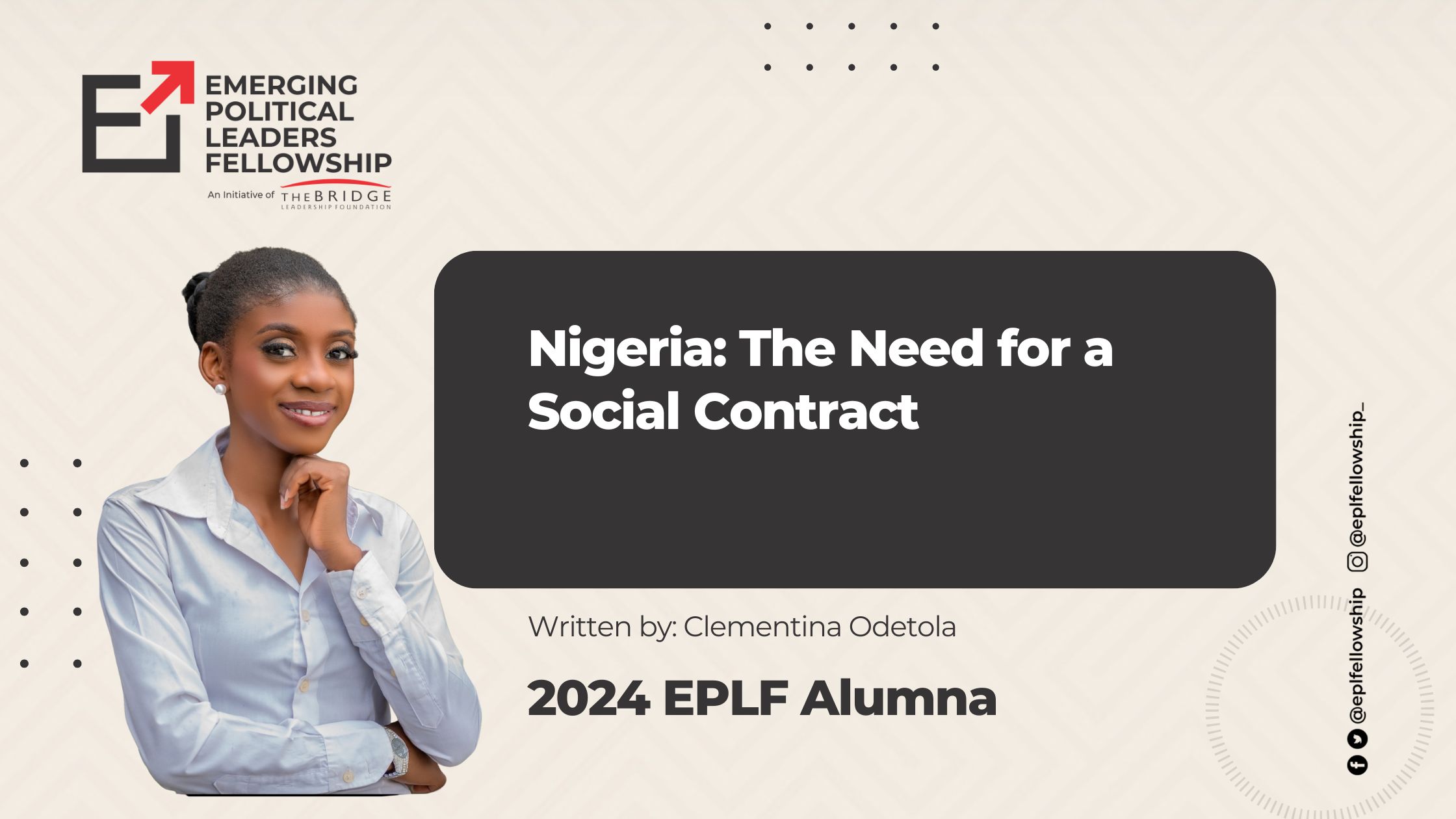An article by Clementina Odetola, EPLF 2024 Alumna
“Nigeria: The Need for a Social Contract” is more than a title; it’s a call to action—and a vital one at that.
At the 2024 Nigerian Bar Association (NBA) Conference, Mrs. Ngozi Okonjo-Iweala delivered a thought-provoking keynote address. She shared an intriguing observation from her visit to Peru, a country that, despite experiencing six presidential changes within seven years, has maintained a stable economy and robust GDP. This paradox led her to ask Peru’s leaders how they achieved economic stability amidst political instability. Their answer was simple yet profound: a social contract.
This concept raises an essential question for Nigeria: what exactly is a social contract, and why does it matter?
A social contract is an implicit agreement among members of a society to cooperate and adhere to shared rules and norms. It is a voluntary pact that governs how individuals interact with one another and with their institutions.
The philosopher Thomas Hobbes famously argued that, without a social contract, life would be “solitary, poor, nasty, brutish, and short.” Hobbes believed such an agreement could create a more equal and just society—a perspective I wholeheartedly embrace as an Emerging Political Leaders Fellow.
For a nation like Nigeria, the need for a social contract is not just theoretical; it is a practical imperative. To build a thriving and equitable society, we must examine the core elements of a social contract:
Key Elements of a Social Contract:
- Mutual Protection: A collective commitment to safeguard each other’s interests.
- Cooperation: A unified effort to ensure mutual safety, security, and progress.
- Shared Values and Norms: A clear purpose, mission, and vision understood and upheld by all.
- Rule of Law: Governance based on laws that are clear, publicized, and equally applicable to everyone. These laws must protect individual rights, freedoms, and dignity, and they must be enacted and enforced impartially.
- Accountability: Leaders and institutions must be answerable to the people and the law.
Implications of a Social Contract:
A well-defined social contract has far-reaching benefits:
- Legitimacy of Authority: Prevents the abuse of power and ensures that leadership is respected.
- Protection of Individual Rights and Freedoms: Promotes justice and fairness for all.
- Social Justice: Safeguards human rights and ensures equity.
- Collective Responsibility: Encourages economic growth, stability, and security.
A social contract is more than a theoretical framework; it is the bedrock of a functional society. It shapes our understanding of governance, community, and individual relationships.
By embracing the principles of a social contract, Nigerians can redefine their responsibilities to one another and to the nation. This is a call to action—a challenge to collectively decide what our social contract should entail and to uphold its terms, no matter the circumstances.
The future of Nigeria depends on this shared commitment. Let us rise to the occasion.

